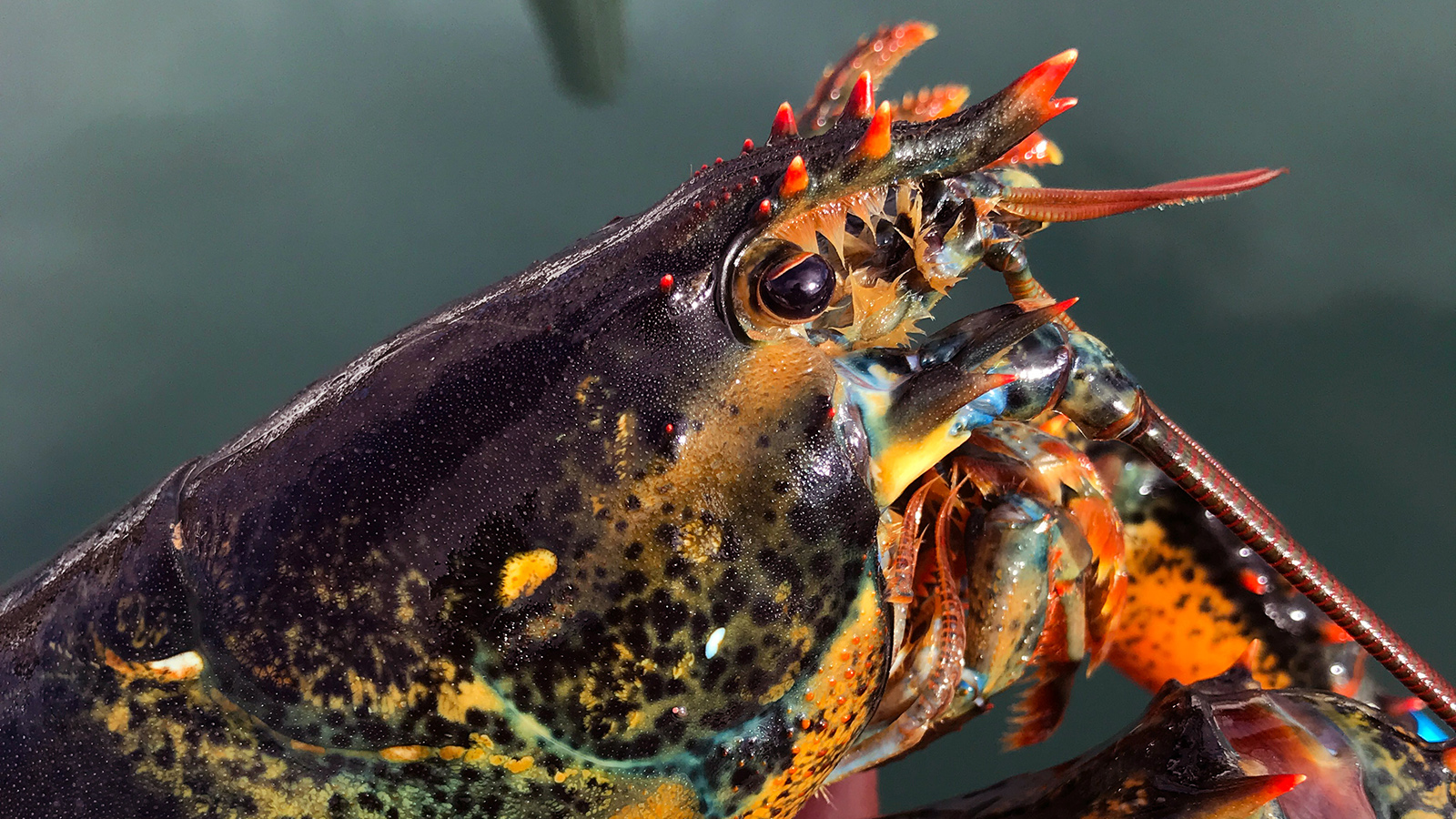
Maine research institutions receive more than $660K to study the American lobster
Maine Sea Grant staff and Maine-based researchers will advance a multimillion-dollar NOAA Sea Grant American Lobster Initiative (ALI), which announced its third round of funding.
Six newly funded research projects, three of which are led by Maine-based researchers, will address critical gaps in knowledge about how the American lobster (Homarus americanus) is being impacted by environmental change in the Gulf of Maine, Georges Bank and southern New England. The focus of this work is based on specific language in Sea Grant’s fiscal year 2021 appropriations language.
One of the most iconic modern American fisheries, the American lobster also represents one of the largest and most valuable single species fisheries along the Atlantic coast. In 2020, the landings value of the American lobster fishery was estimated at $524.5 million in the United States, according to NOAA Fisheries, of which the Maine fishery accounted for an estimated $408 million. Within Maine, lobsters make up roughly 80% of the landings value of all fisheries combined. However, ecosystem shifts, food web changes and ocean acidification all present threats to the American lobster fishery.
“Given the importance of lobster to the economy and culture of Maine, I’m thrilled to have these new projects join the growing initiative,” said Amalia Harrington, a marine extension team member with Maine Sea Grant at UMaine and the regional extension coordinator for the American Lobster Initiative. “The more we learn now, the better prepared our lobster industry will be in the future.”
The American Lobster Initiative supports both scientific research and a northeast regional Sea Grant extension program, coordinated by Maine Sea Grant, to increase the American lobster industry’s resilience to the biological, economic, and social impacts of ecosystem change
Over the past three years, the American Lobster Initiative has invested more than $5.4 million in research and extension projects, including more than $2.5 million to fund ten projects led by researchers in Maine. This year, more than $660,000 will support new research at the University of Maine, Maine Department of Marine Resources, and Wells National Estuarine Research Reserve.
Damian Brady, an associate professor in the School of Marine Sciences at the University of Maine, will expand the decades-long work of modeling larval American lobster transport to include dynamics associated with prey availability. Through the team’s work with the Maine Department of Marine Resources, Maine Lobstermen’s Association, and the Lobster Institute, the study will build a flexible ecosystem-based early life history model capable of answering fundamental questions from industry members and stakeholders regarding changes in ocean conditions, larval distribution, and their relationships to their food supply.
Rebecca Peters, a marine resource scientist at the Maine Department of Marine Resources, will partner with the Maine Center for Coastal Fisheries to understand what current and new predators of American lobsters exist in the Gulf of Maine, especially as it pertains to juvenile lobsters. To answer this question, they will use current surveys to collect stomachs from seven species that prey on lobster: Atlantic cod, white hake, red hake, Atlantic halibut, Atlantic mackerel, black sea bass and striped bass. This team of researchers, state agency scientists, and industry members will share results with federal research partners, members of the lobster industry, and students across Maine. The research will provide data on potential lobster predators and allow managers to use these data to update current single species American lobster assessments and work on ecosystem models for the Gulf of Maine.
Jason Goldstein, research director at the Wells National Estuarine Research Reserve, will work to evaluate the overall health and quality of egg-bearing American lobsters and examine how environmental drivers of climate change in the Gulf of Maine may be impacting this key life history phase. The data obtained from this project will be used to inform future stock assessments and lay the groundwork for a long-term monitoring program that includes the linkages between egg-bearing lobster health and climate change. Stakeholder engagement and outreach will serve to connect the findings with the commercial lobster fishery, fisheries managers, students, and the public through data sharing, presentations, artistic visualization, and opportunities for student learning and experience.
For a list of research projects funded in 2019 and 2020 visit the American Lobster Initiative website.
